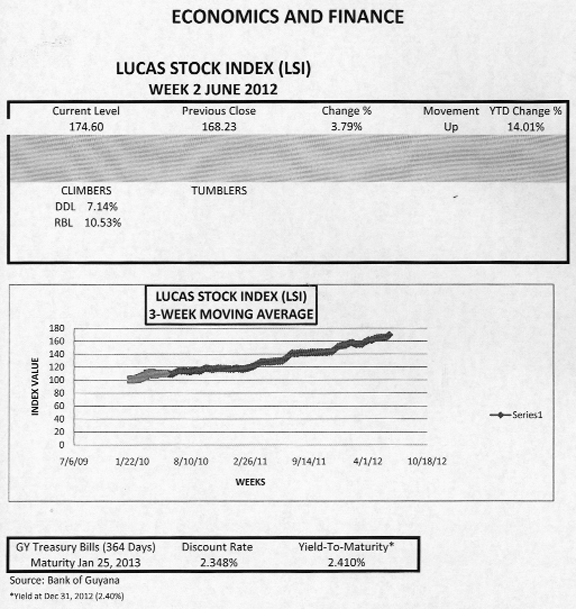Not widespread
The year 2011 was one in which Guyanese went to the banks for additional cash to spend on their household needs. Their visits to the banks not only resulted in substantial profits for the financial institutions, but also in a 15 per cent increase in the amount that they owed to the banks when compared to their outstanding balances of 2010. The double-digit expansion in debt marked the second consecutive year in which the outstanding balances of households grew by more than 10 per cent, demonstrating an increasing reliance on the banks to meet their personal needs. The two consecutive years of growth counteracts a three-year period that saw households scale down their borrowing and the amounts owed to the banks. Despite the recent upturn, Guyanese households have still not returned to the days of large scale borrowing as in 2005 and 2007 when bank balances expanded by 25 and 35 per cent respectively. The expansion in borrowing is a good sign for the economy since household spending accounts for more than half of the revenues accruing to factor incomes, and Guyanese were sustaining their purchases with the borrowed funds. Household debt is needed to keep the Guyana economy going. The developments over the past two years, though encouraging, are not widespread enough to reach a majority of Guyanese and to make a major impact on communities.
Identifiable categories
Guyanese households borrow money to purchase a range of goods and services. According to the Bank of Guyana, households take money from the banks to purchase cars, to improve their homes, to spend on education, to travel, to buy durable goods such as furniture and washing machines, and for several other purposes. The largest identifiable categories of

